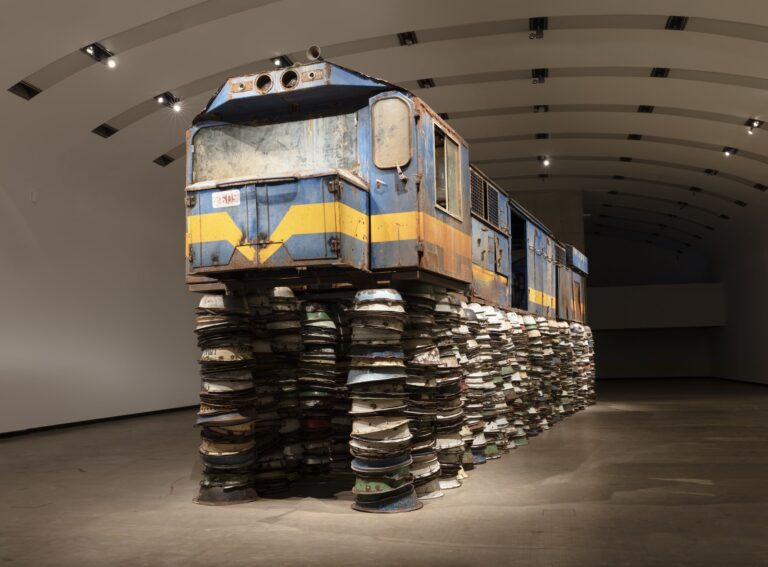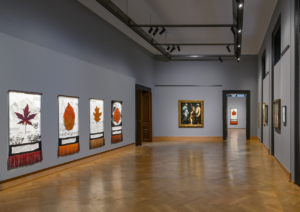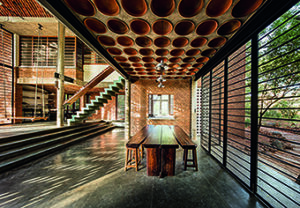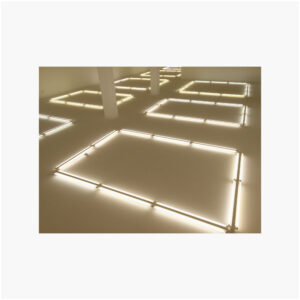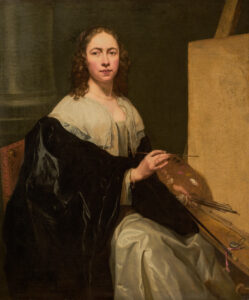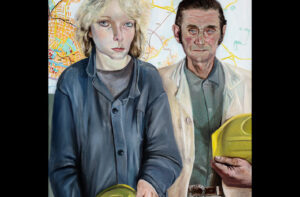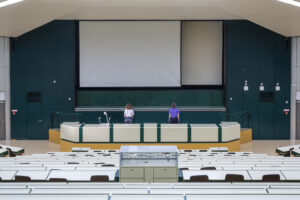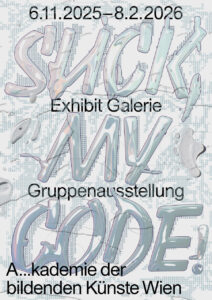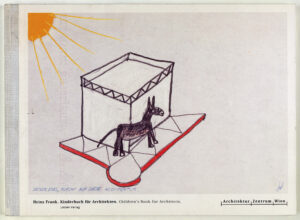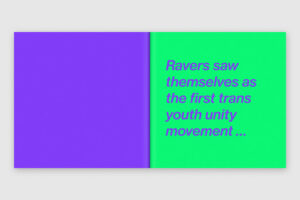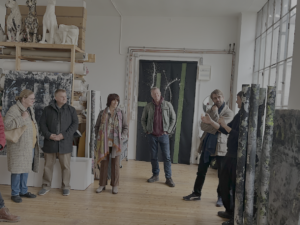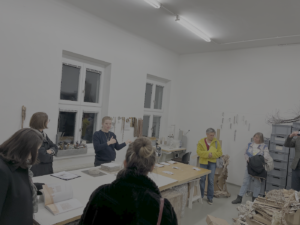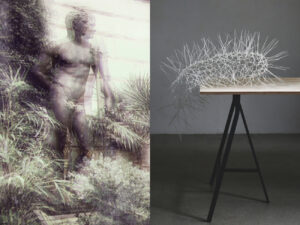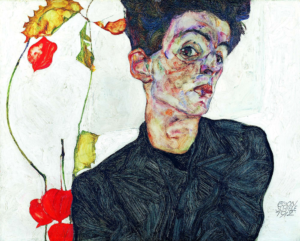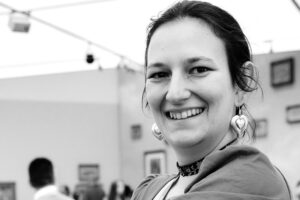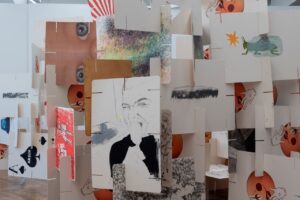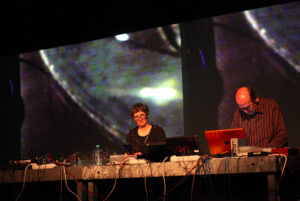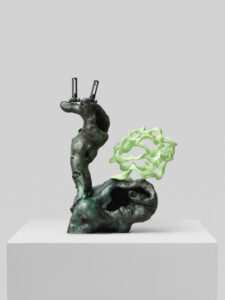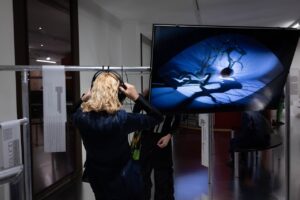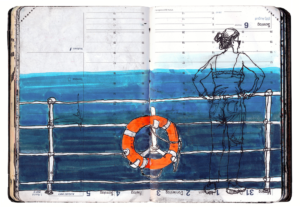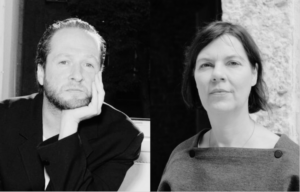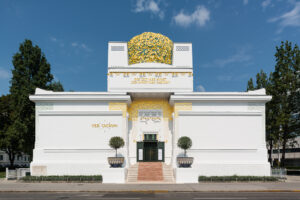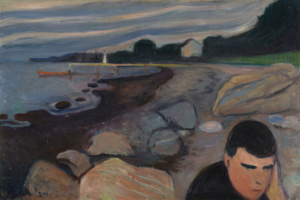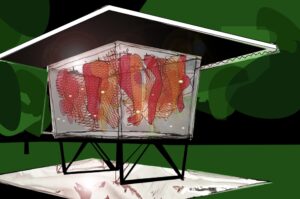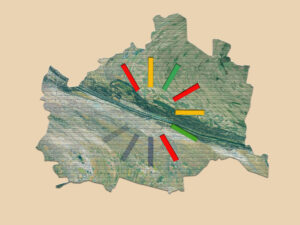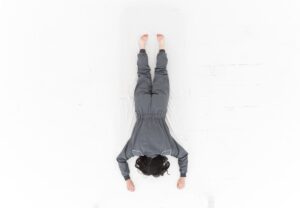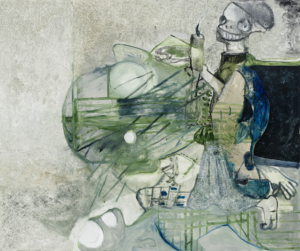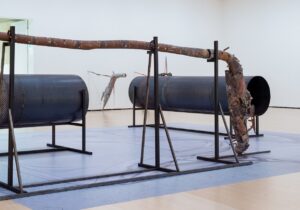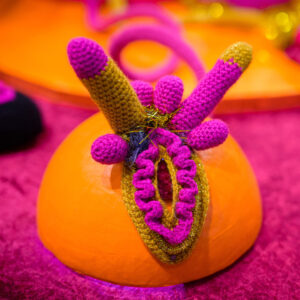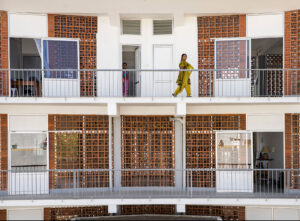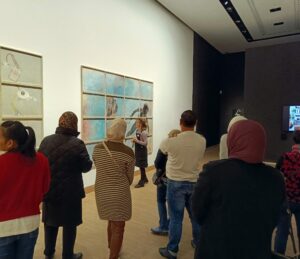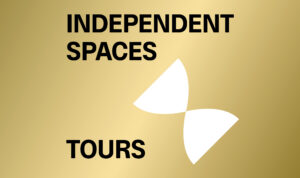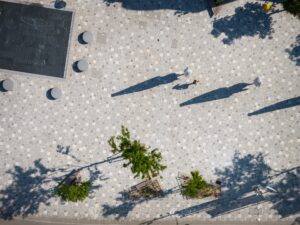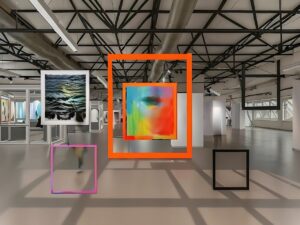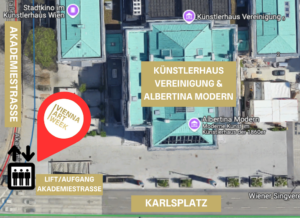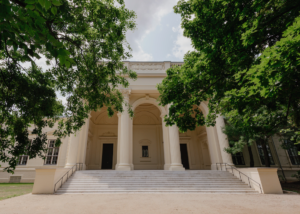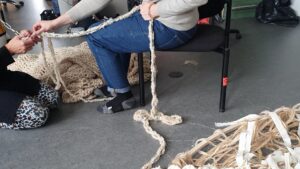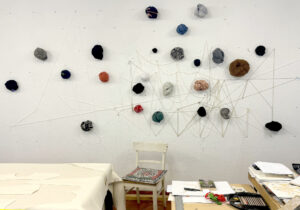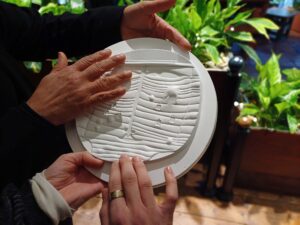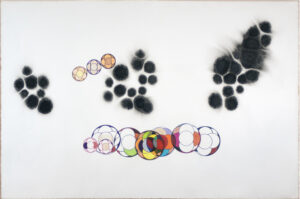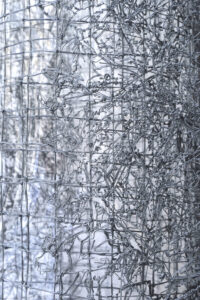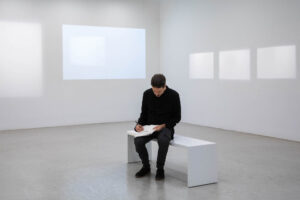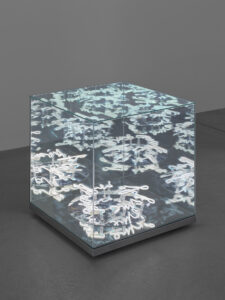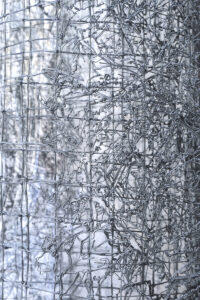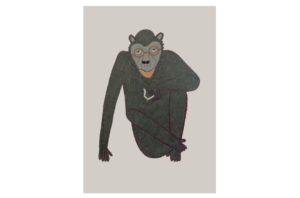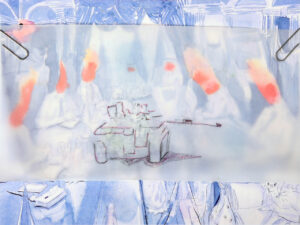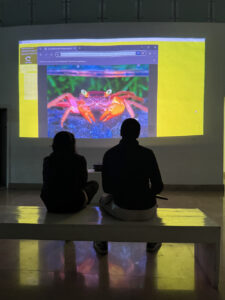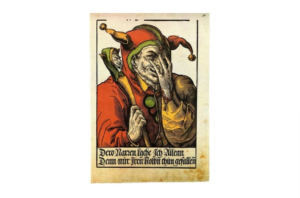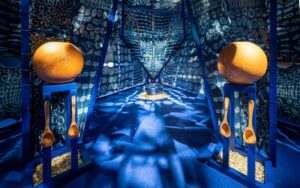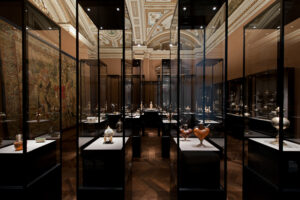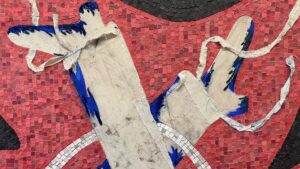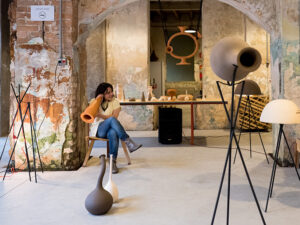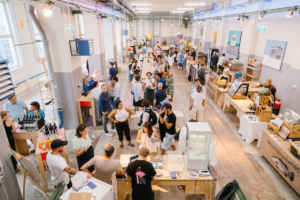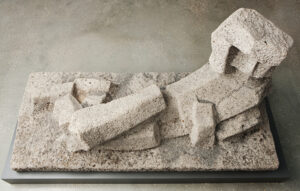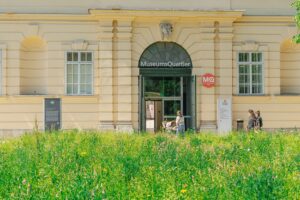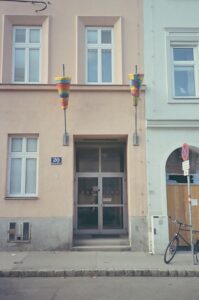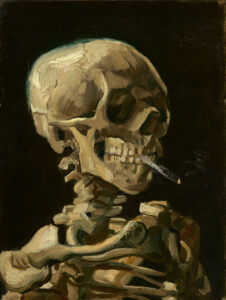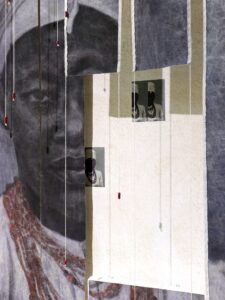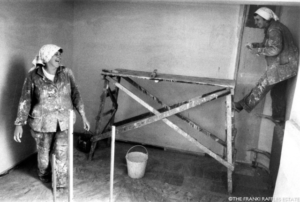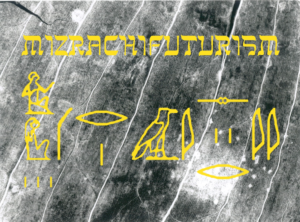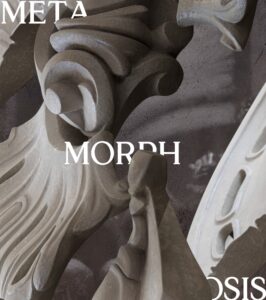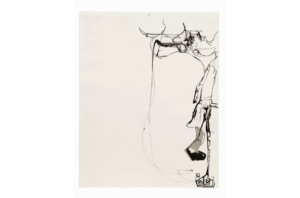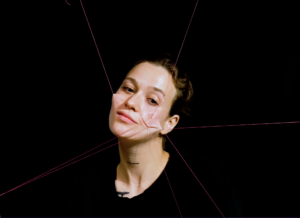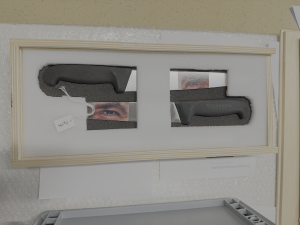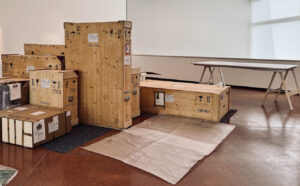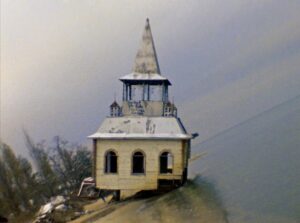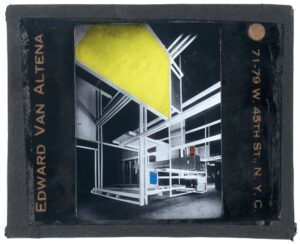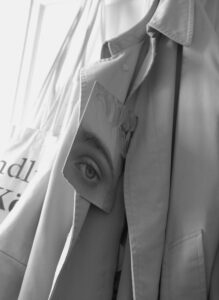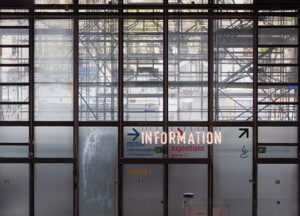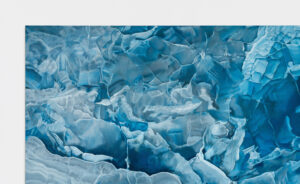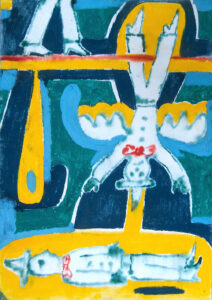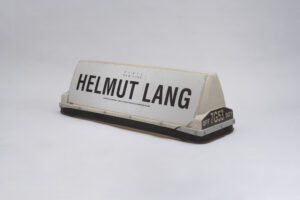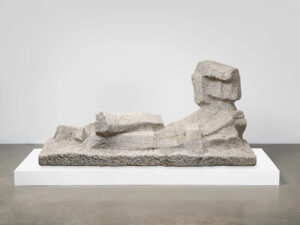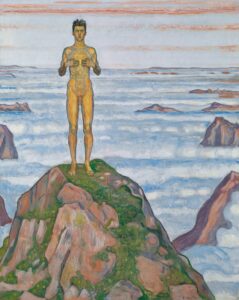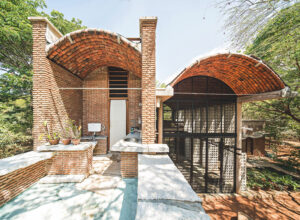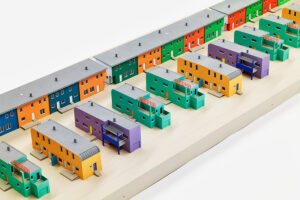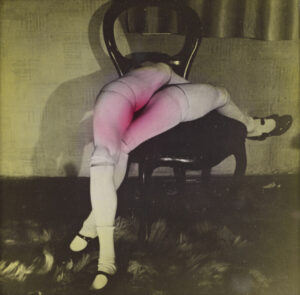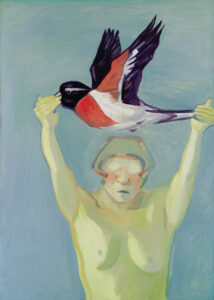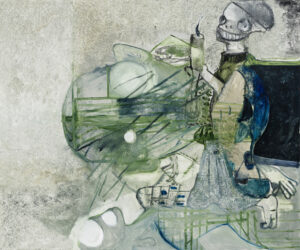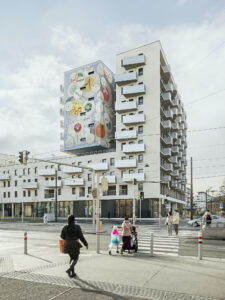05/11/2025
Ausstellung
GLIMPSES
06/11/2025
Eintritt frei
SUCK MY CODE! – Gruppenausstellung
07/11/2025
Führung
Kuratorinnenführung mit Sabine Folie durch ‘The Day You Were Thinking About the Sibyl While You Were Picking Autumn Leaves. An Insert by Ana Torfs’
07/11/2025
Führung
Gallery Tour 1
07/11/2025
Führung
Gallery Tour 2
07/11/2025
Special Event
Independent Art Spaces Tour 1: SUSSUDIO, philomena+, Im:Werd
07/11/2025
Lecture
Lecture der Architektin Anupama Kundoo zur Ausstellung ‘Reichtum statt Kapital. Anupama Kundoo’
07/11/2025
Talk
Nela Eggenberger spricht mit Künstlerin Sigrid Kurz über deren Werkschau ‘here we are we here’
07/11/2025
Eintritt frei
ERÖFFNUNG: Ausstellung: „House of Learning Systems“
07/11/2025
Führung
AUSGEBUCHT: Exkursion des Az W: Studio Visits bei ASPHALT und 3:0
07/11/2025
Führung
VIENNA ART WEEK FÜR ALLE: “Alles Männersache?” – Tastführung zur Sonderausstellung ‘Michaelina Wautier, Malerin’ & Begleitdienst
08/11/2025
Eröffnung
Eröffnung: ‘Establishing Connection’
08/11/2025
Eröffnung
Eröffnung: ‘X Frames Per Space’
08/11/2025
Eröffnung
Eröffnung Lumen X: ‘Learning Systems Unlearned – Kreative Subversion in der Fotografie’
08/11/2025
Führung
Rundgang durch ‘Alles in Arbeit’
08/11/2025
Führung
VIENNA ART WEEK FÜR ALLE: Rundgang in einfacher Sprache durch die Ausstellung ‘Alles in Arbeit’
08/11/2025
Führung
Open Studio Days: District Tour 1 – 9. Bezirk
08/11/2025
Führung
VIENNA ART WEEK FÜR ALLE: Barrierefreie Shuttle Tour 1
08/11/2025
Führung
Open Studio Days: District Tour 2 – 16. Bezirk
08/11/2025
Führung
Open Studio Days: District Tour 4 – 4. Bezirk
08/11/2025
Führung
Gallery Tour 3
08/11/2025
Führung
Gallery Tour 4
08/11/2025
Screening
“Geschichte sehen, Gegenwart verstehen, Zukunft lernen” – Filmpremiere & Talks
08/11/2025
Führung
Geführter Rundgang durch PART, International Art Residency Austria – Tour 1
08/11/2025
Führung
Geführter Rundgang durch PART, International Art Residency Austria – Tour 2
08/11/2025
Special Event
Open Studio Days 2025
08/11/2025
Talk
Panel discussion: “Crafting Knowledges from Intimacy”
08/11/2025
Eintritt frei
13-19h – Ausstellung: „House of Learning Systems“
08/11/2025
Performance
Performance: “How to Make It As An Artist In 50 Minutes (akademische Viertelstunde inklusive)“
08/11/2025
Talk
Artist Talk: “Transitory Garden (Vergänglicher Garten)”
08/11/2025
Führung
VIENNA ART WEEK FÜR ALLE: “Museum zum Anfassen – Hundertwasser mit allen Sinnen”
08/11/2025
Eröffnung
Ausstellungseröffnung: ‘Fernando García Correa, ENLACES-VERFLECHTUNGEN’
08/11/2025
Führung
Open Studio Days: District Tour 3 – 7. Bezirk
08/11/2025
Eröffnung
Eröffnung: ‘Curators’ Agenda Final Group Exhibition’
08/11/2025
Ausstellung
Systemische Läufe
08/11/2025
Führung
Kuratorinnenführung durch die Ausstellung ‘SUCK MY CODE!’ mit Mareike Schwarz und Rosanna Marie Pondorf
08/11/2025
Ausstellung
DOMESTICATED
09/11/2025
Führung
Kuratorinnenführung durch die Ausstellung “HOUSE OF LEARNING SYSTEMS”
09/11/2025
Special Event
Kreativworkshop „Familienatelier” (3-6 Jahre): “Achtung, hier wird gearbeitet!”
09/11/2025
Lecture
“More Than Just Words – Experimentelle Dichtung und bildende Kunst” – ein Vortrag von Vanessa Joan Müller
09/11/2025
Führung
VIENNA ART WEEK FÜR ALLE: Ausstellungsführung durch ‘TURNING PAGES. Künstler*innenbücher der Gegenwart’ mit ÖGS-Simultanübersetzung
09/11/2025
Führung
VIENNA ART WEEK FÜR ALLE: Barrierefreie Shuttle Tour 2
09/11/2025
Führung
Open Studio Days: District Tour 5 – 4. & 6. Bezirk
09/11/2025
Führung
Open Studio Days: District Tour 6 – 15. Bezirk
09/11/2025
Führung
Open Studio Days: District Tour 8 – 7. & 8. Bezirk
09/11/2025
Führung
Geführter Rundgang durch die Bundesateliers Westbahnstraße mit Ruth Horak & Maria Holter
09/11/2025
Führung
Geführter Rundgang durch die Bundesateliers Wattgasse mit Klaus Speidel und Maria Holter
09/11/2025
Eröffnung
Eröffnung: ‘what world keeps together most inside – like Goethe’s Faust asks urgently’
09/11/2025
Special Event
Open Studio Days 2025
09/11/2025
Talk
‘Prosuming Art’ – Kunstkritiker Michael Huber im Gespräch mit eSeL
18/07/2025
Ausstellung
BRIGITTE KOWANZ: LICHT IST WAS MAN SIEHT
09/11/2025
Eintritt frei
13-19h – Ausstellung: „House of Learning Systems“
09/11/2025
Führung
Open Studio Days: District Tour 7 – 5. Bezirk
10/11/2025
Lecture
Keynote & Podiumsdiskussion: “Learning Systems” – Aktuelle Trends und Tendenzen in der österreichischen und internationalen Kunstwelt
10/11/2025
Talk
Artist Talk: “Systemische Läufe”
10/11/2025
Lecture
SALON°FUTUR – „From Burnout to Siesta“: Tag 1
10/11/2025
Führung
AUSGEBUCHT: Kuratorinnenführung durch ‘Die Linie’ mit Veroniqué Abpurg
10/11/2025
Führung
VIENNA ART WEEK FÜR ALLE: “Einfach Kunst”- Rundgang in einfacher Sprache durch die Ausstellung ‘WIEN 1900. AUFBRUCH IN DIE MODERNE’
10/11/2025
Führung
VIENNA ART WEEK FÜR ALLE: “Herz über Kopf” – Teilhabeorientierte Führung inkl. Workshop für Menschen mit Demenz, Angehörige und Begleitpersonen
10/11/2025
Talk
Max Freund – Ausstellungsgespräch mit dem Künstler
10/11/2025
Eröffnung
Eröffnung: ‘Error 404’
10/11/2025
Eintritt frei
13-19h – Ausstellung: „House of Learning Systems“
10/11/2025
Eröffnung
Eröffnung: ‘Don’t Skip!’
11/11/2025
Eröffnung
Eröffnung: ‘host//:age’
11/11/2025
Performance
Showing & Performance: “Der Hofnarr / The Jester” von Alex Franz Zehetbauer
11/11/2025
Special Event
Künstlerin Sophie von Hellermann im Gespräch mit Michelle Cotton, Artistic Director Kunsthalle Wien
11/11/2025
Special Event
“Angewandte Einblicke”: die Klasse Jan Svenungsson – Zeichnung und Druckgrafik
11/11/2025
Führung
Direktorinnenführung mit Claudia Banz durch die Ausstellung ‘Tabita Rezaire’
11/11/2025
Lecture
SALON°FUTUR – „From Burnout to Siesta“: Tag 2
11/11/2025
Special Event
Selbst kreativ werden: “Scribo – Farbe erzeugt Musik / Musik steuert Pinselstrich”
11/11/2025
Führung
Independent Art Spaces Tour 2: DAS WEISSE HAUS & Blickle Raum Spiegelgasse
11/11/2025
Führung
VIENNA ART WEEK FÜR ALLE: Überblicksführung mit Übersetzung in Österreichische Gebärdensprache durch ‘Guan Xiao: Teenager’
11/11/2025
Führung
VIENNA ART WEEK FÜR ALLE: Führung in einfacher Sprache: “Einfach gesagt: Civa. Ausflug in die Welt der Quanten”
11/11/2025
Eintritt frei
13-19h – Ausstellung: „House of Learning Systems“
11/11/2025
Führung
“Sammellust und Ordnungswahn” – eine Führung durch die Kunstkammer Wien
11/11/2025
Eröffnung
Eröffnung von ‘Weltverständnis?’ samt Künstlerführung und Podiumsdiskussion mit Olaf Osten
11/11/2025
Talk
Ausstellungsbesprechung mit Kunstkritikerin Vanessa Joan Müller und Kurator Paul Feigelfeld
11/11/2025
Führung
Apéro & Künstlerführung mit Egor Lovki
12/11/2025
Special Event
“Mineral As Musical Note” – Eine Performance im Naturhistorischen Museum
12/11/2025
Führung
Tour “Creatives for Vienna – Making Spaces”
12/11/2025
Lecture
VIENNA ART WEEK FÜR ALLE: Vortrag “Die Secession erfühlen” – Techniken und Herausforderungen eines Tastmodells
12/11/2025
Führung
Dialogführung mit dem Künstler Thomas Feuerstein durch seine Ausstellung ‘Metabolica‘
12/11/2025
Führung
Kuratorinnenführung durch ‘Wotruba International’
12/11/2025
Führung
“New spirit” – Dialogführung durch die Ausstellung ‘Verborgene Moderne. Faszination des Okkulten um 1900’ mit Matthias Dusini und Ivan Ristić
12/11/2025
Eröffnung
Eröffnung: Anita Fuchs – ‘Wiesenstück‘
12/11/2025
Special Event
Theaterworkshop 1: “Am Lagerfeuer: Über Theater sprechen, aber wie eigentlich?” – eine Kooperation mit dem Schauspielhaus Wien
12/11/2025
Special Event
Theaterworkshop 2: “Am Lagerfeuer: Über Theater sprechen, aber wie eigentlich?” – eine Kooperation mit dem Schauspielhaus Wien
12/11/2025
Performance
Performance & Artist Talk: “Tautropfen (Gotas de Rocío): Sonic Dialogues“ mit Artists For Future Austria
12/11/2025
Eintritt frei
13-19h – Ausstellung: „House of Learning Systems“
12/11/2025
Screening
Screening & Talk: Cosima Terrasse,”Gezinkte Karten” – Ein digitaler Spaziergang durch das digitale Double von Wien
12/11/2025
Eröffnung
Eröffnung & Performance: Anne Glassner / Lisa Spalt: ‘Traumzelle REM, Remember or Remake’
13/11/2025
Führung
AUSGEBUCHT: “Shh” – Ausstellungsrundgang mit Tobias Pils und Kuratorin Manuela Ammer
13/11/2025
Eröffnung
Eröffnung & Open House: ‘Embedded knowledge – Learning from within’
13/11/2025
Führung
AUSGEBUCHT: Führung durch ‘GOTHIC MODERN. Munch, Beckmann, Kollwitz’
13/11/2025
Führung
“Erforschen, Erzählen, Erhalten” – Rundgang vom Dom Museum Wien zum Stephansdom und zur Dombauhütte
13/11/2025
Führung
Ausstellungspreview und Artist Talk mit Dior Thiam und Sebastian Haselsteiner
13/11/2025
Special Event
Talks & Performance: “Was bleibt, was verschwindet”
13/11/2025
Führung
Ausstellungsführung durch das ‘HOUSE OF LEARNING SYSTEMS’
13/11/2025
Performance
Performance von Sheri Avraham: “Mizrachi Futurism: Situated Systems”
13/11/2025
Talk
Breaking the Habitus: Queering des Museums durch das Queer Museum Vienna
13/11/2025
Talk
Artist Talk: “METAMORPHOSIS”
13/11/2025
Talk
Exhibition and talking: ‘Other’ mit Vera Mantjuk
13/11/2025
Special Event
Artist Talk & Buchpräsentation: ‘The Belly Knows Before the Brain’ mit Fuzzy Earth (Tekla Gedeon & Sebastian Gschanes)
13/11/2025
Eintritt frei
13-19h – Ausstellung: „House of Learning Systems“
13/11/2025
Special Event
Meet the Artist – Tobias Pils
13/11/2025
Führung
VIENNA ART WEEK FÜR ALLE: ÖGS-Führung mit Eva Böhm durch die Ausstellungen von June Crespo, John Smith und Atelier Bow-Wow
13/11/2025
Performance
Performance von Kata Oelschlägel: “Trennnaht”
14/11/2025
Führung
“Talking through Weibel” – Führung, Keynote & Discussion
14/11/2025
Führung
AUSGEBUCHT: “Wie geht Museum?” – Eine Führung für Erwachsene
14/11/2025
Screening
Office Ukraine Screenings im mumok kino
14/11/2025
Performance
Performance: “Die Feminismusmaschine – eine partizipative Performance-Battle”
14/11/2025
Führung
AUSGEBUCHT: Kurator:innenführung mit Günther Oberhollenzer und Miriam King durch ‘DU SOLLST DIR EIN BILD MACHEN’
14/11/2025
Führung
Independent Art Spaces Tour 3: wechselstrom, Basement, Medienwerkstatt
14/11/2025
Führung
VIENNA ART WEEK FÜR ALLE: Führung in ÖGS durch die Ausstellung ‘Reichtum statt Kapital. Anupama Kundoo’
28/05/2025
Ausstellung
Frederick Kiesler – The Endless Search
14/11/2025
Führung
AUSGEBUCHT: VIENNA ART WEEK FÜR ALLE: Führung und Workshop in einfacher Sprache zur Ausstellung ‘Du sollst dir ein Bild machen’
14/11/2025
Special Event
Cocktail und Artist Talk – Hanakam & Schuller: ‘Cosmic Commissioner’
14/11/2025
Special Event
Finissage ‘The Endless Search’ und Abschlussveranstaltung am Standort Mariahilfer Straße der Friedrich Kiesler Stiftung
14/11/2025
Special Event
“Licking Licking Stones” – Workshop mit Fuzzy Earth (Tekla Gedeon & Sebastian Gschanes)
14/11/2025
Eintritt frei
13-19h – Ausstellung: „House of Learning Systems“
14/11/2025
Performance
Performative Klausur: „Hat der ‚Feministische Rat‘ getagt?“
14/11/2025
Führung
VIENNA ART WEEK FÜR ALLE: “Alles Männersache?” – Führung mit ÖGS-Dolmetschung zur Sonderausstellung ‘Michaelina Wautier, Malerin’
13/06/2025
Ausstellung
Kazuna Taguchi: I’ll never ask you
21/10/2025
Ausstellung
WERKSCHAU XXX: SIGRID KURZ
24/10/2025
Ausstellung
MACHINOISERIE Tobias Klein / Hong Zeiss
14/10/2025
Ausstellung
Max Freund
21/10/2025
Ausstellung
EGOR LOVKI
04/12/2025
Ausstellung
Claudia Pagès Rabal
10/12/2025
Ausstellung
HELMUT LANG
16/10/2025
Eröffnung
Kata Oelschlägel: Versöhnung
25/06/2025
Ausstellung
HITO STEYERL: Der Menschheit ist die Kugel bei einem Ohr hinein und beim anderen herausgeflogen
17/07/2025
Ausstellung
Wotruba International
04/09/2025
Ausstellung
VERBORGENE MODERNE
05/07/2024
Ausstellung
Mapping the 60s Kunst – Geschichten aus den Sammlungen des mumok
18/09/2025
Ausstellung
Reichtum statt Kapital. Anupama Kundoo
01/10/2025
Ausstellung
TURNING PAGES: Künstler*innenbücher der Gegenwart
03/02/2022
Ausstellung
Hot Questions – Cold Storage
23/05/2025
Ausstellung
Die Welt von morgen wird eine weitere Gegenwart gewesen sein
28/03/2025
Ausstellung
Nie endgültig! Das Museum im Wandel
27/09/2025
Ausstellung
Tobias Pils: Shh
22/10/2025
Ausstellung
Schwarze Juden, Weisse Juden?
26/09/2024
Eintritt frei
Be a mensch: Johanna Kandl
